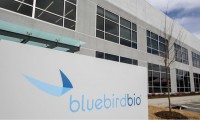-
Merck’s 21-Valent Pneumococcal Conjugate Vaccine Granted FDA Priority Review
- Source: drugdu
- 133
- December 25, 2023
-
FDA Grants Priority Review to Genentech’s sBLA for Xolair to Treat Food Allergies
- Source: drugdu
- 103
- December 22, 2023
-
Calliditas wins over FDA for full approval, broader label on kidney disease drug Tarpeyo
- Source: drugdu
- 222
- December 22, 2023
-
FDA drafts guidance outlining real-world evidence for medical device submissions
- Source: drugdu
- 117
- December 21, 2023
-
Chiesi Rare Skin Disease Drug Acquired in Billion Dollar Deal Wins FDA Approval
- Source: drugdu
- 101
- December 21, 2023
-
After missing out on FDA voucher, bluebird quickly raises funds to support gene therapy launches
- Source: drugdu
- 97
- December 21, 2023
-
Glaukos wins FDA approval for drug-releasing eye implant to treat glaucoma
- Source: drugdu
- 93
- December 19, 2023
-
FDA Approves Padcev/Keytruda Combo for Locally Advanced, Metastatic Urothelial Cancer
- Source: drugdu
- 97
- December 19, 2023
-
With new FDA approval, Merck’s Welireg takes another step toward blockbuster goal
- Source: drugdu
- 92
- December 19, 2023
-
Arcutis’ Zoryve bags 2nd FDA nod, this time as a foam to treat ‘the great neglected disease in dermatology’
- Source: drugdu
- 88
- December 19, 2023
your submission has already been received.
OK
Subscribe
Please enter a valid Email address!
Submit
The most relevant industry news & insight will be sent to you every two weeks.













